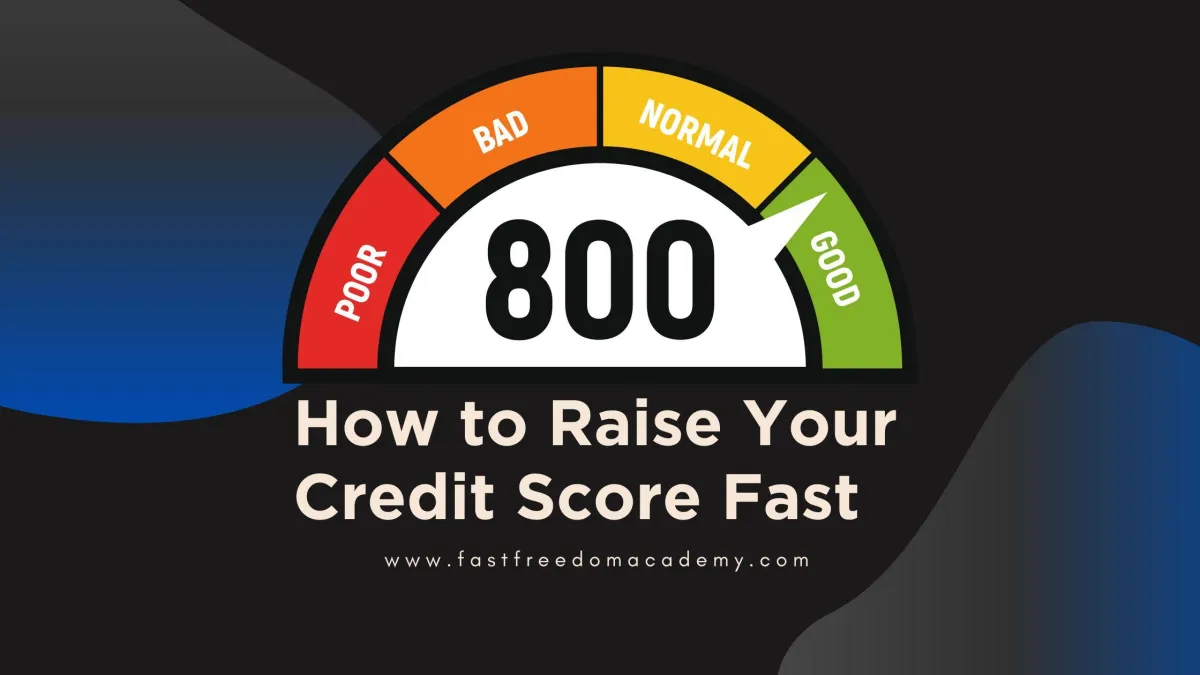Our Latest Articles

Raise Credit Score Fast - Simple Steps for Quick Results
How to Raise Your Credit Score Fast
Your credit score is more than just a number—it’s a crucial factor that can shape your financial future. Whether you're planning to buy a home, lease a car, or negotiate better credit terms, having a strong credit score can help you unlock more opportunities and save money in the long term. The good news? You don’t have to wait years to see improvements. With focus and smart strategies, you can raise your credit score fast—often within a few months.
Why Your Credit Score Matters
Before jumping into actionable steps, it’s important to understand the role your credit score plays. Lenders use this number to evaluate how trustworthy you are when it comes to managing debt. A higher score often means better loan terms, lower interest rates, and greater financial flexibility. Conversely, a lower score can cost you thousands in additional interest over the life of a loan or even disqualify you for credit altogether.
What Makes Up Your Credit Score?
Your credit score is determined by the following key factors:
Payment History (35%) – Your ability to pay bills on time.
Credit Utilization (30%) – How much of your available credit you’re using.
Credit History Length (15%) – How long your accounts have been open.
Credit Mix (10%) – The variety of credit types you manage (e.g., credit cards, loans).
Recent Credit Inquiries (10%) – The number of recent hard inquiries on your report.
Now, let's explore actionable steps to raise your credit score fast.
1. Pay Bills on Time—Every Time
Payment history is the single biggest factor affecting your credit score. Missing even one payment can have a noticeable impact. Here’s how to stay on top of your bills:
Automate Payments – Set up automatic payments for recurring bills, like credit cards and utilities, to avoid late fees.
Set Reminders – Use calendar notifications or budgeting apps to track due dates.
Catch Up on Overdue Payments – If you’ve fallen behind, prioritize catching up. Over time, consistent payments will start to rebuild your credit profile.
By developing a habit of paying on time, you can see meaningful improvements in just a few months.
2. Reduce Your Credit Utilization Rate
Your credit utilization rate measures how much of your available credit you’ve used and accounts for 30% of your score. Keeping this rate low is key to improving your score quickly.
Quick Tips to Lower Your Utilization
Aim for Below 30% – Try to use no more than 30% of your available credit limit. For example, if your total credit limit is $5,000, keep your balances below $1,500.
Strive for Below 10% – For an even faster impact, reduce your utilization rate to less than 10%.
Request a Credit Limit Increase – Contact your credit card issuer to request a higher credit limit. If approved, this can lower your utilization rate instantly without paying down balances.
The lower your credit utilization, the better your credit score.
3. Check for Errors on Your Credit Report
Mistakes on your credit report can unfairly drag your score down. Start by requesting free copies of your credit report from the three major credit bureaus (Experian, Equifax, and TransUnion) at AnnualCreditReport.com.
Steps to Dispute Errors
Review Each Report Thoroughly – Look for inaccuracies, such as incorrect balances or accounts listed as overdue when they’re not.
File a Dispute – Submit disputes directly to the credit bureau that reported the error. You’ll need to provide documentation, such as payment receipts, to back up your claim.
Follow Up – Credit bureaus are required to investigate disputes within 30 days. Correcting errors can lead to noticeable score improvements.
4. Avoid Applying for New Credit
While applying for a new credit card or loan might seem like a good idea, it can actually hurt your score in the short term. Each application results in a hard inquiry, which temporarily lowers your score.
Smart Strategies for Hard Inquiries
Limit New Applications – Only apply for credit when absolutely necessary.
Loan Shopping? Time It Right – If you’re comparing rates for a major loan (like a mortgage), aim to complete all applications within a short window (usually 14–45 days). Credit bureaus often treat multiple inquiries within this timeframe as a single inquiry.
5. Become an Authorized User
If you have a trusted family member or friend with excellent credit, ask if they can add you as an authorized user on one of their credit cards.
How This Helps
You’ll benefit from their positive account history, such as on-time payments and low balances.
You don’t have to use the card or make payments—it’s their responsibility.
However, this strategy requires trust. If the primary account holder misses payments or carries a high balance, it could negatively affect your score.
6. Monitor Your Progress
Regularly tracking your credit score helps you stay motivated and catch potential issues early, such as identity theft or unauthorized charges. Many credit card companies now offer free credit monitoring tools, and services like Credit Karma provide access to credit scores and reports at no cost.
Benefits of Monitoring
Fraud Detection – Spot fraudulent accounts or activity in real time.
Track Improvements – See how actions like paying down balances are affecting your score.
Set Alerts – Enable notifications for major updates, such as new inquiries.
Final Thoughts on Improving Your Credit Score
Raising your credit score fast is possible when you focus on proven strategies. Here’s a quick recap of what works:
Pay all your bills on time.
Keep your credit utilization low (ideally below 10%).
Dispute any inaccuracies on your credit report.
Avoid unnecessary credit inquiries.
Leverage the benefits of being an authorized user on a trustworthy account.
Remember, while quick wins are achievable, building excellent credit requires consistency and smart financial habits over time. Start today, and you’ll soon be on the path to a stronger financial future.

Helping you take control of your credit and financial future.
Quick Links
Contact Us
Legal
© Fast Freedom Academy 2025 All Rights Reserved.
